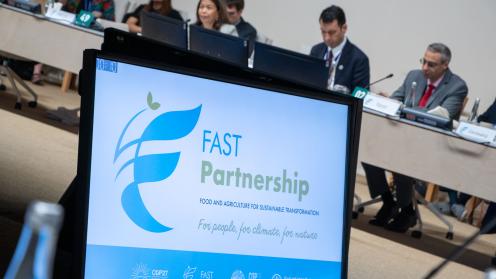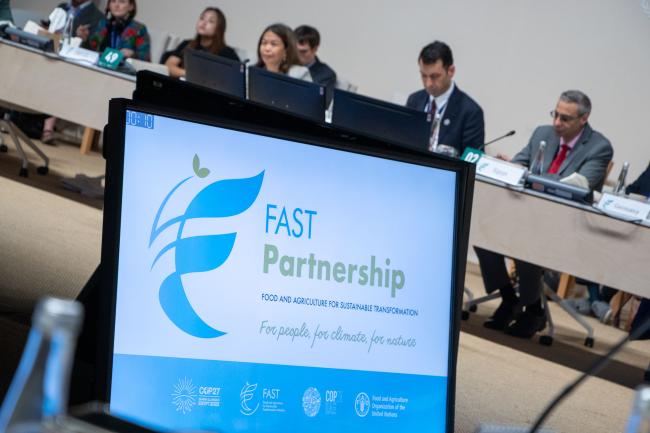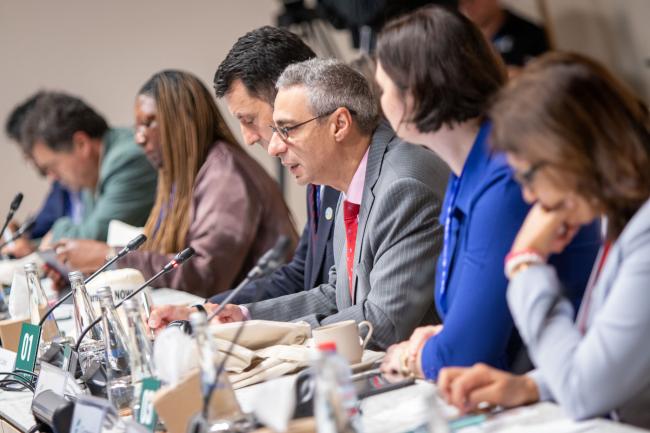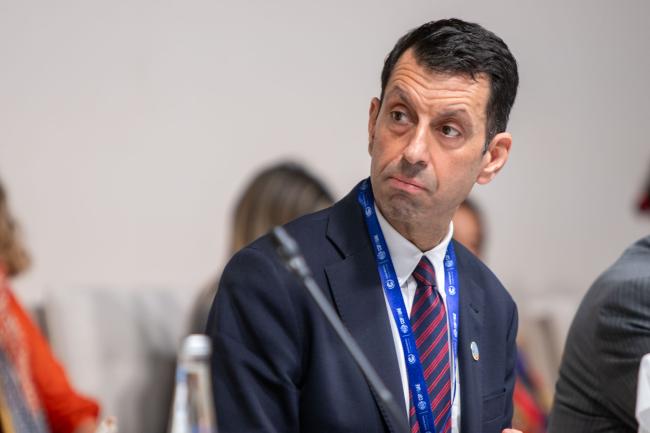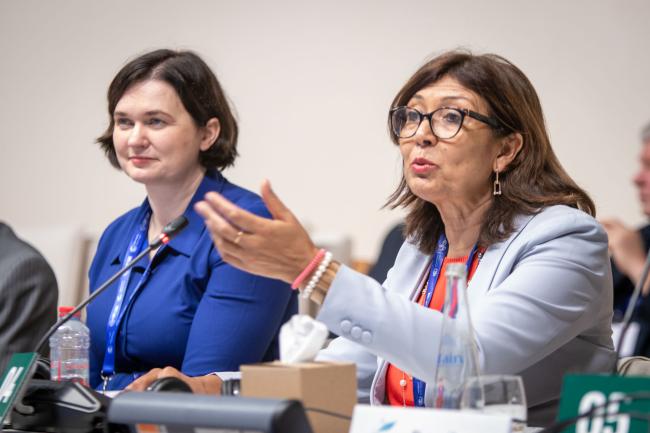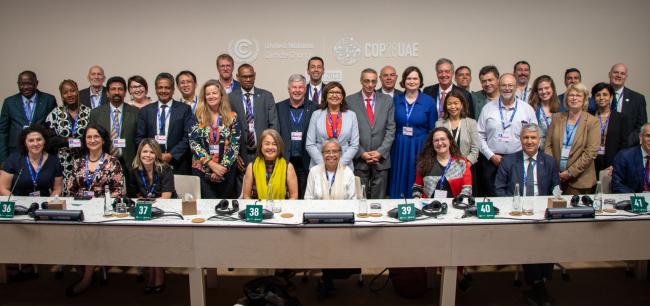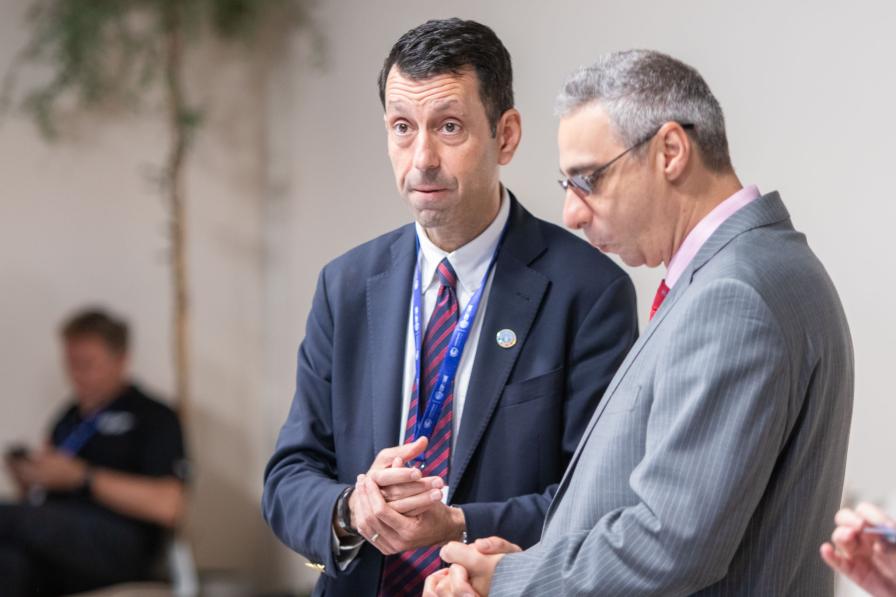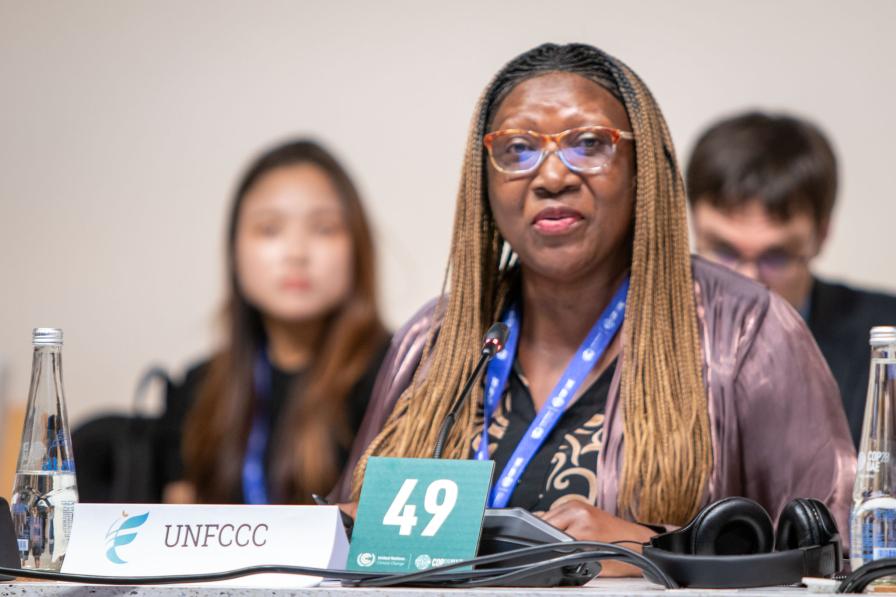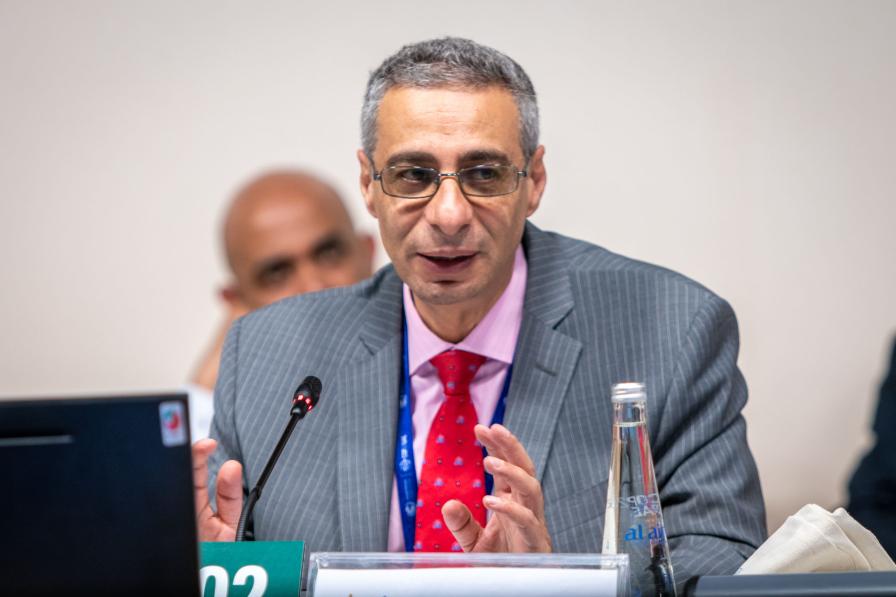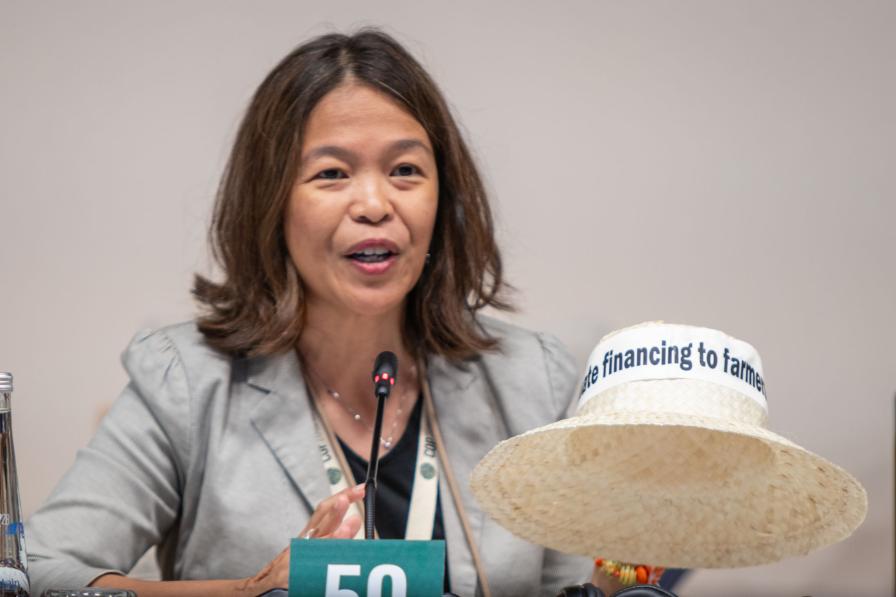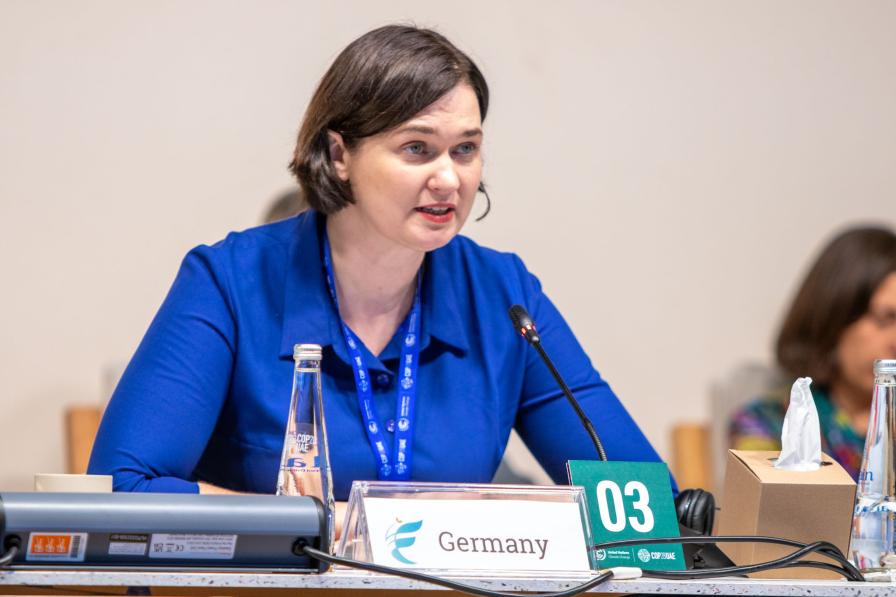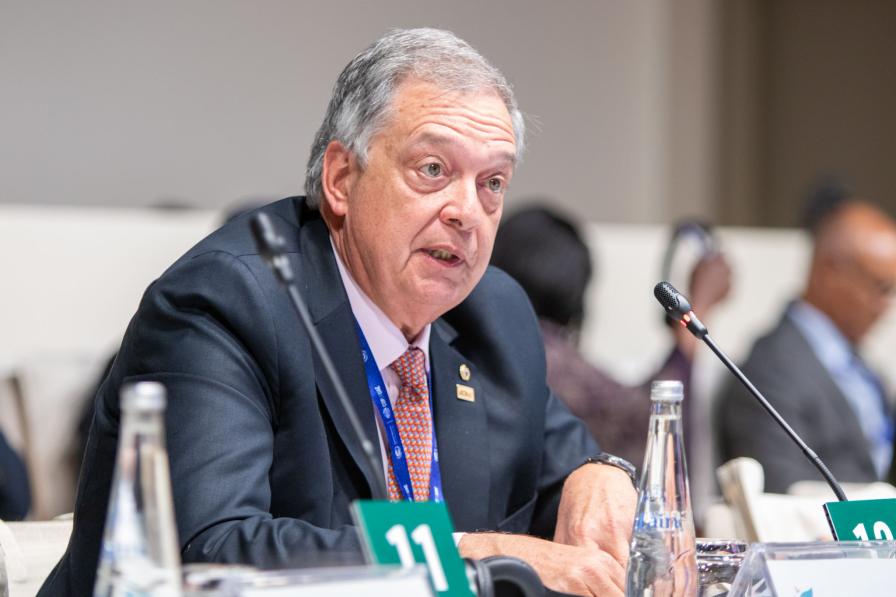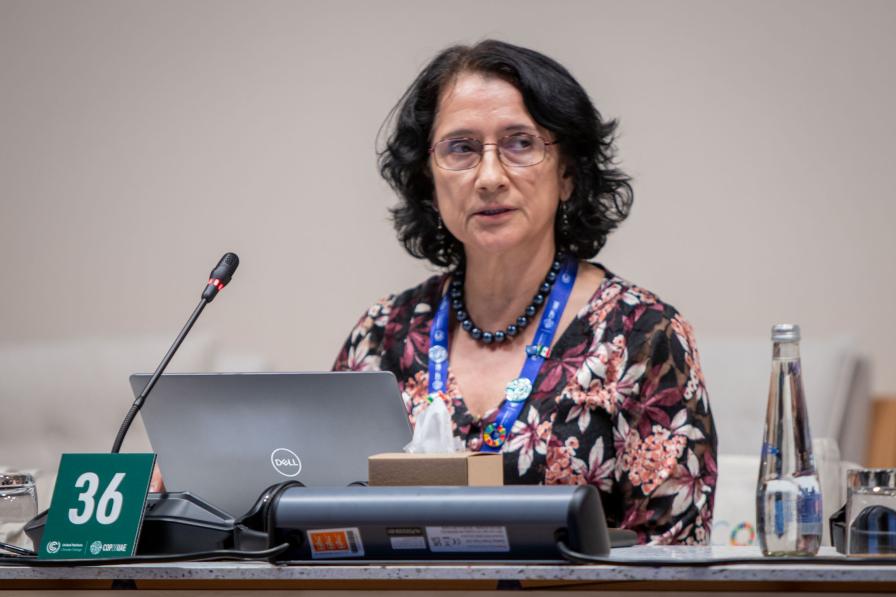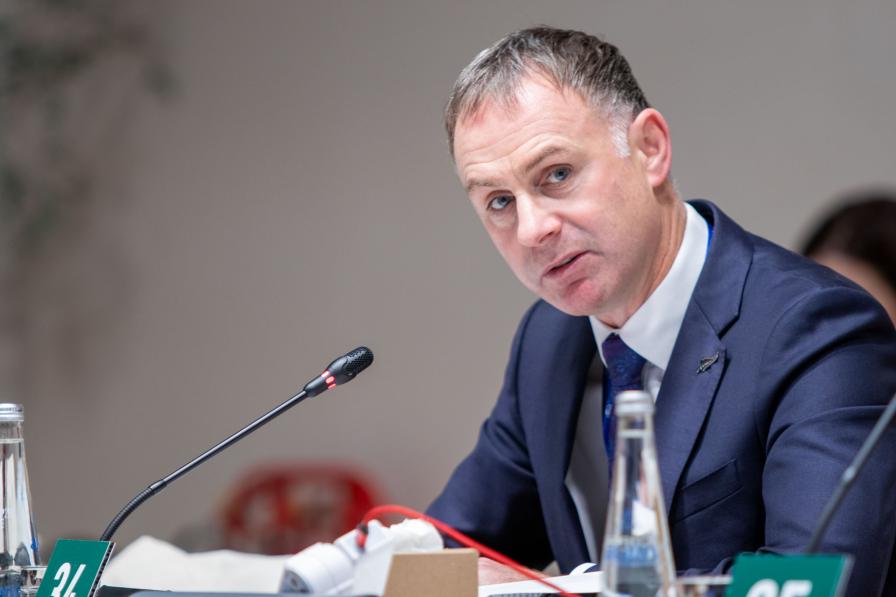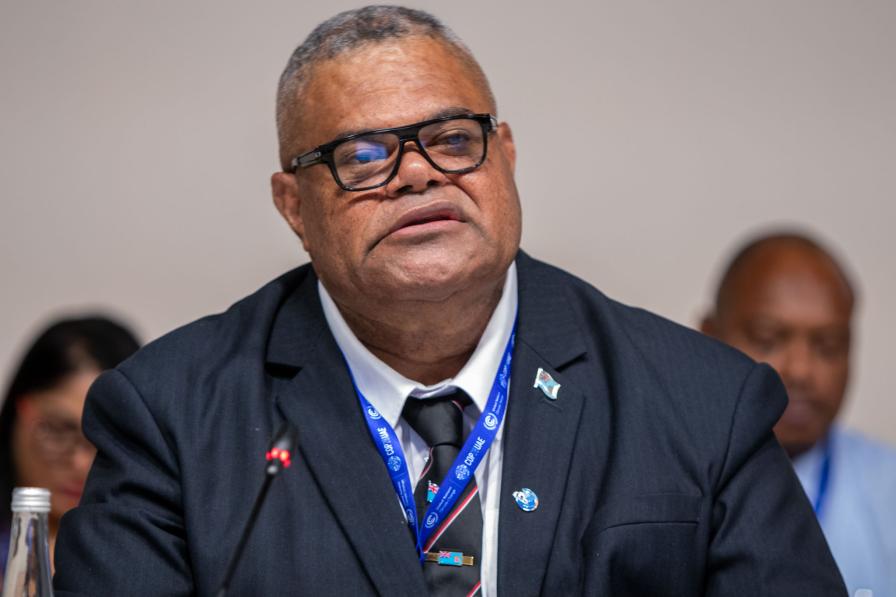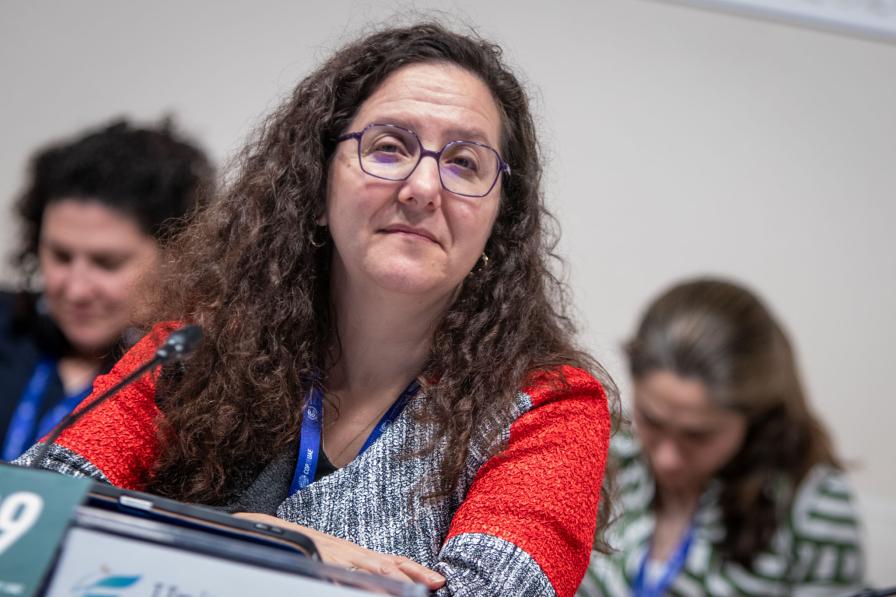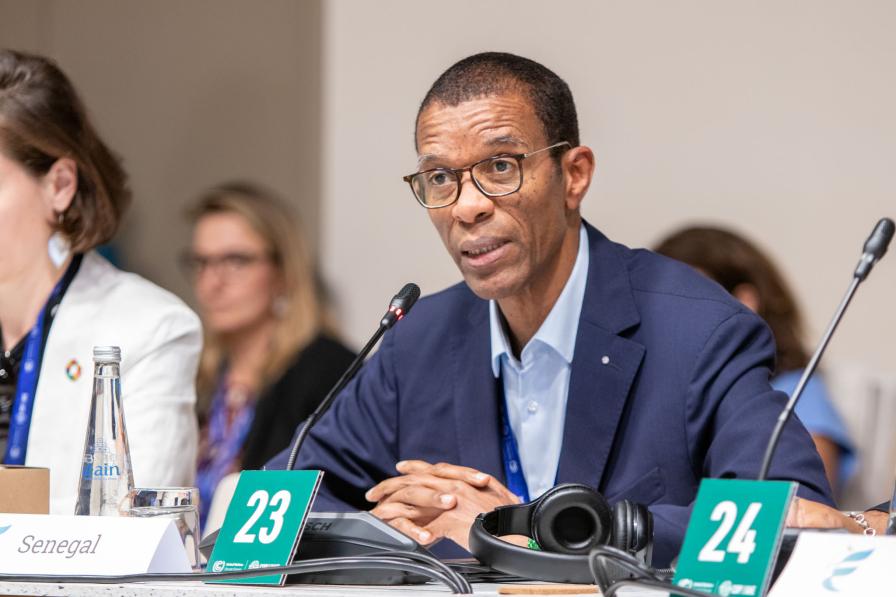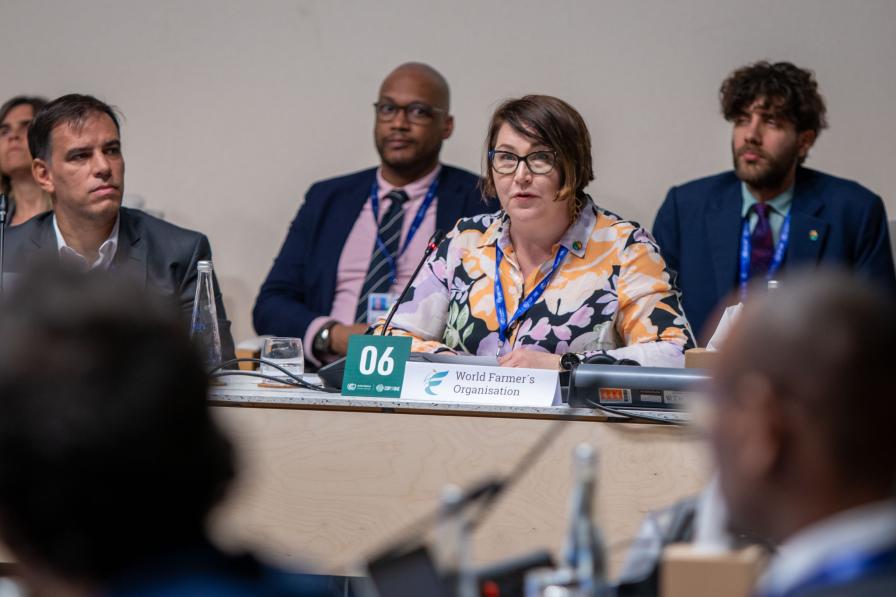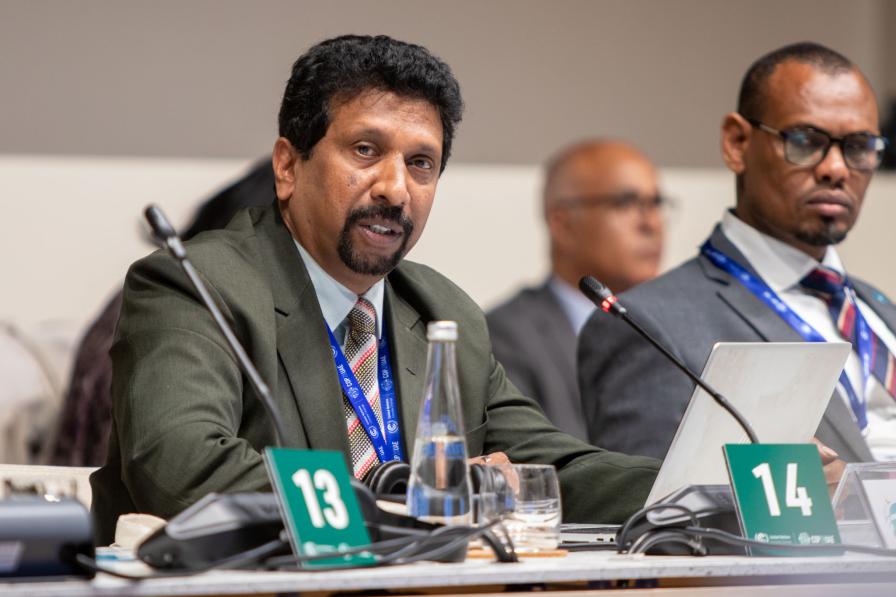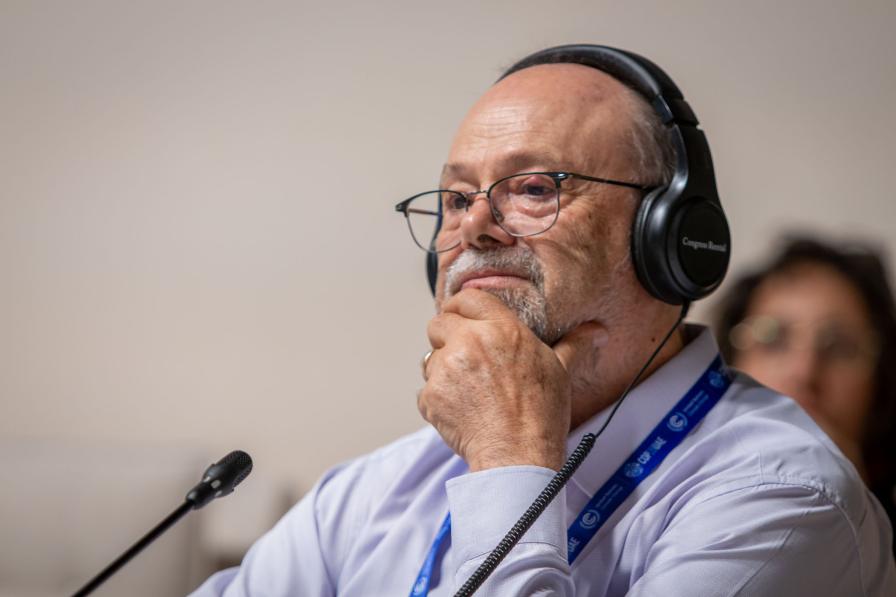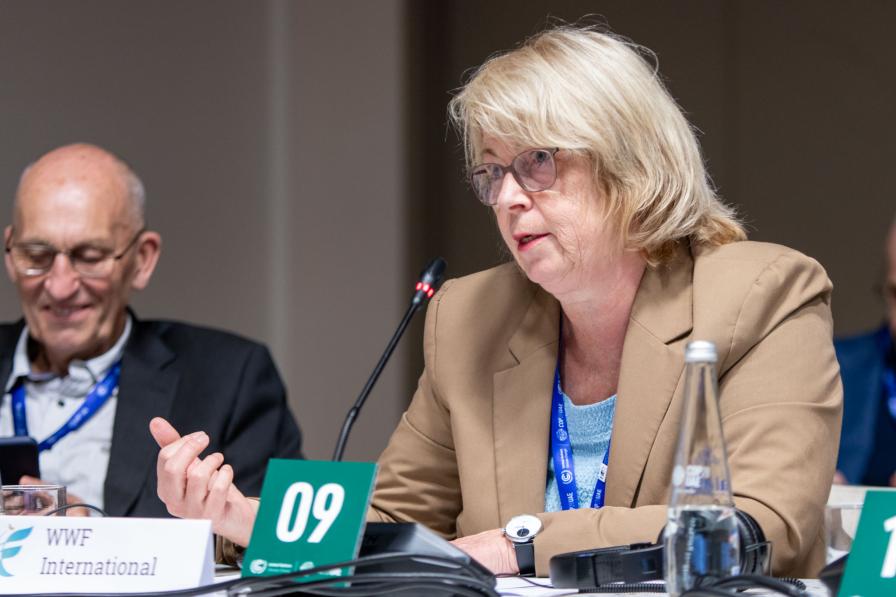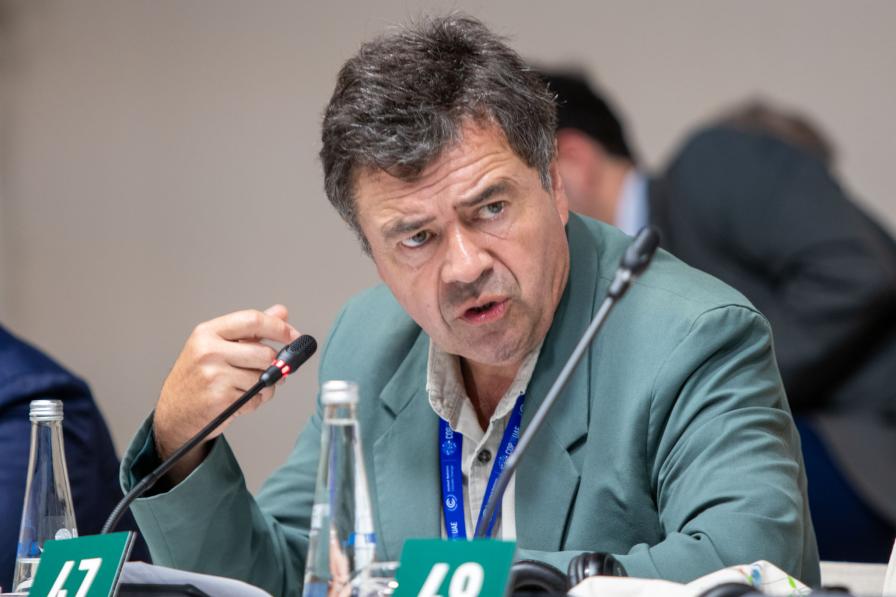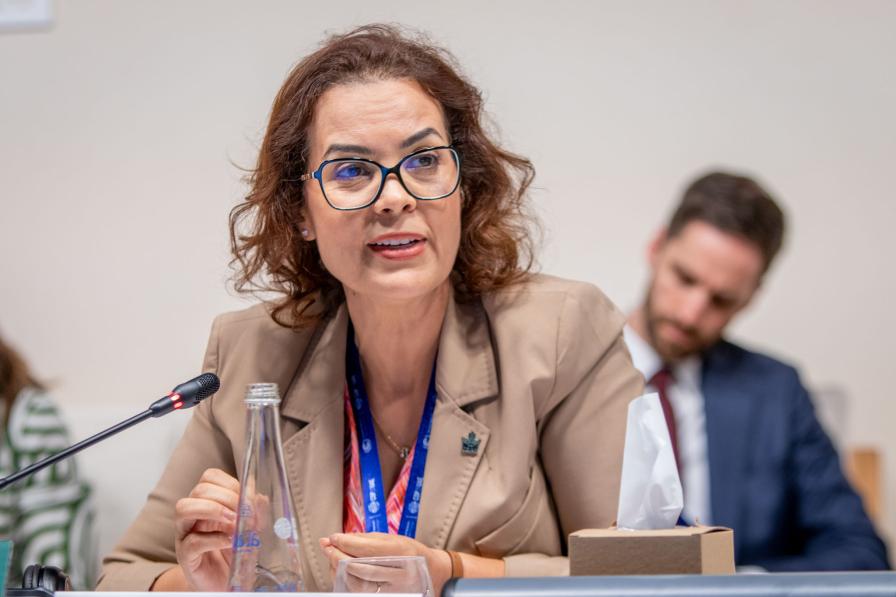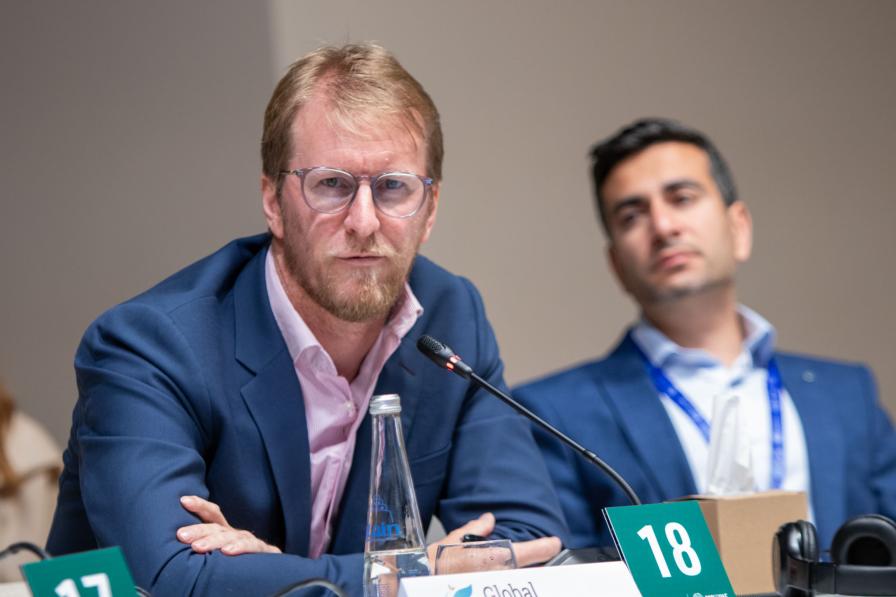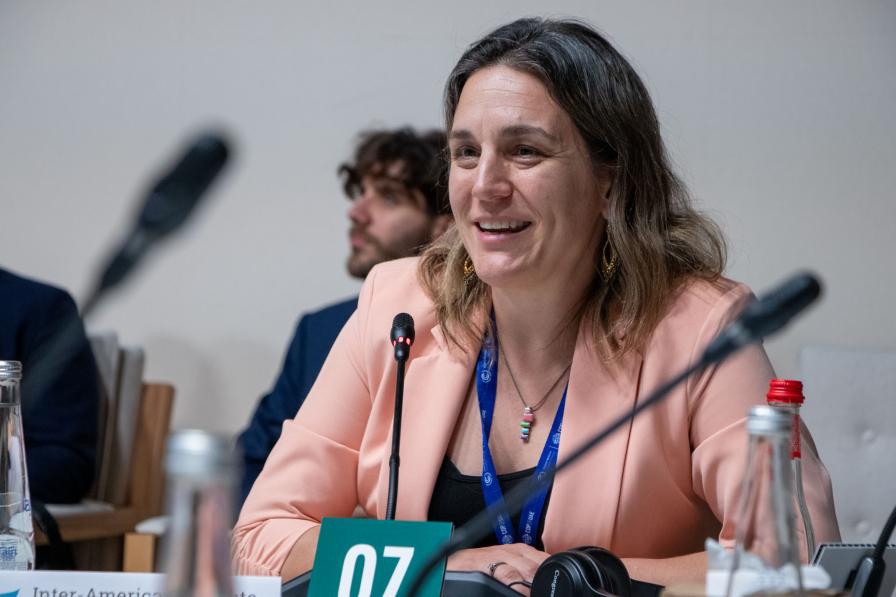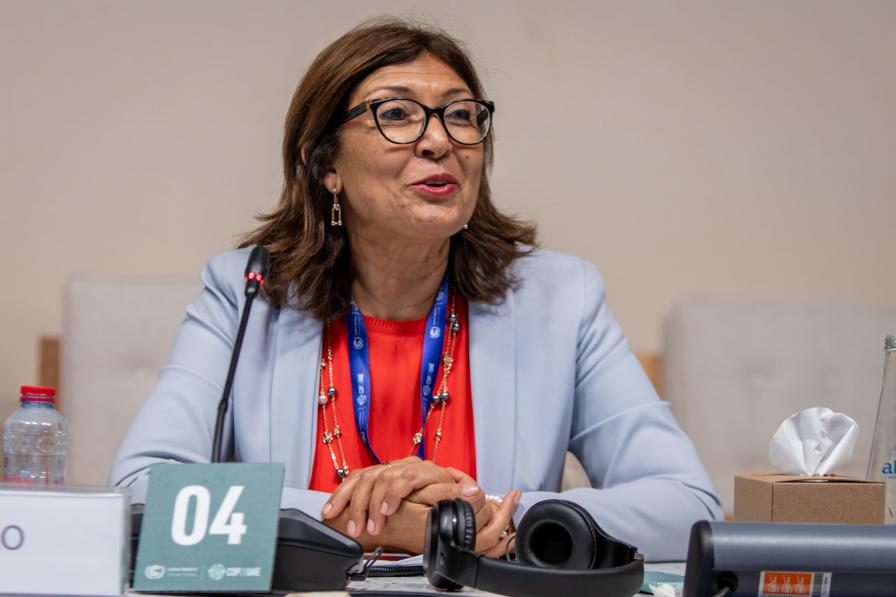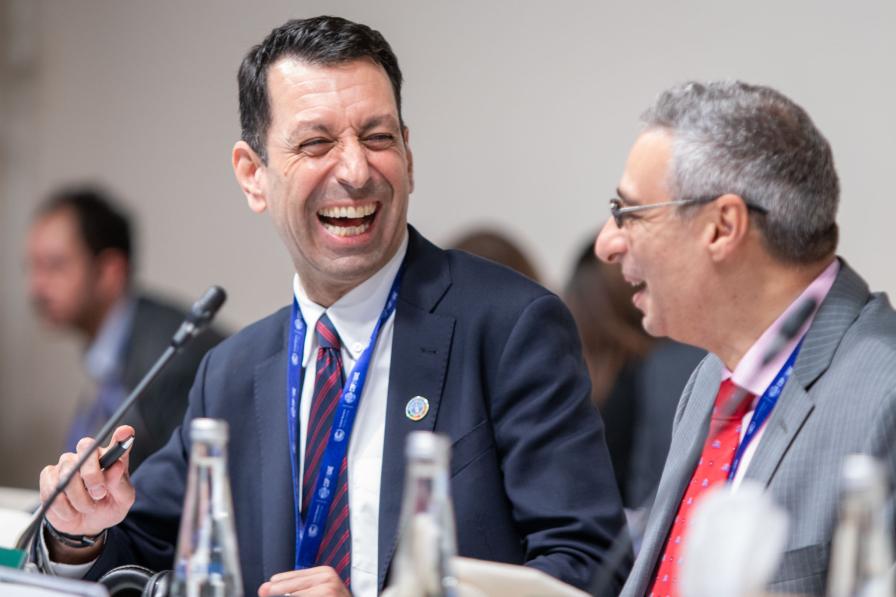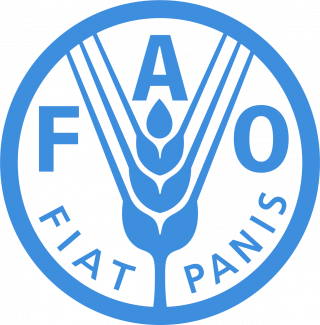Summary
FAST was first launched as an initiative by the COP 27 Presidency, which tasked the UN Food and Agriculture Organization (FAO) to operationalize it with the aim to improve the quality, quantity, and access of climate finance for sustainable agricultural transformations across all levels, regions, and sectors.
High-Level Event Inception Meeting of the Food and Agriculture for Sustainable Transformation (FAST) Partnership
Recent assessments show that the availability and access to climate finance at both the farm and country levels remain largely insufficient for unleashing agrifood solutions to climate change. Convened on Food, Agriculture and Water Day, the Inception Meeting for the Food and Agriculture for Sustainable Transformation (FAST) Partnership took place. The Partnership acts as an accelerator to transform agrifood systems to deliver triple wins for people, for climate, and for nature. FAST was first launched as an initiative by the COP 27 Presidency, which tasked the Food and Agriculture Organization of the UN (FAO) to operationalize it with the aim to improve the quality and quantity of and access to climate finance for sustainable agricultural transformations across all levels, regions, and sectors. The FAST Partnership has now become an inclusive partnership open for membership by developing and developed nations and stakeholders.
FAST seeks to serve as a connecting bridge between climate-related finance for agriculture priorities and discussions at COPs, carrying and building momentum. FAST also creates a link with the COP 28 Emirates Declaration on Sustainable Agriculture, Resilient Food Systems, and Climate Action, which has received over 150 commitments from heads of state to integrate agrifood system approaches into climate action.
Kaveh Zahedi, Director of the Office of Climate Change, Biodiversity, and Environment, FAO, moderated the session. He welcomed delegates and expressed gratitude to Germany’s Federal Ministry of Food and Agriculture for supporting the inception phase of the FAST Partnership. He drew attention to the findings of the Climate-related Development Finance to Agrifood Systems report launched that day, which reveals that the amount of climate finance flowing to agrifood systems is strikingly low and continues to diminish vis-à-vis other global climate finance flows.
Cecilia Kinuthia-Njenga, UNFCCC, congratulated Egypt and the United Arab Emirates (UAE) for exemplifying the partnership required to keep agriculture at the heart of both COP 27 and COP 28, respectively. The FAST Partnership, she noted, is crucial for catalyzing sustainable agriculture in the face of the extreme climate-related vulnerability of farmers, women, and youth to acute food and water insecurity.
Hatem Elatawy, Ministry of Foreign Affairs, Egypt, noted the FAST Initiative was first conceived at COP 27 in Egypt to support climate change adaptation and mitigation and accelerate the solutions that deliver triple wins for climate, people, and nature. He highlighted the three pillars of FAST: access to finance; knowledge and capacity; and policy support and dialogue.
Imelda Bacudo, COP 28 Presidency, UAE, said the FAST Partnership is linked to the UAE Declaration, with over 150 signatories so far, which is aimed at agriculture and food systems transformation in the context of Nationally Determined Contributions (NDCs) and National Adaptation Plans (NAPs). She emphasized the importance of addressing the finance bottleneck towards the sector, highlighting the role of FAST in this regard.
Claudia Müller, Parliamentary State Secretary, Germany, said the transformation required in agriculture should secure the future by mitigating against the impacts of climate change, protecting biodiversity, and contributing to peace. She reported that COP 28 parties have shown commitment towards adaptation through the Emirates Declaration and the loss and damage fund, adding that the FAST Partnership will provide the necessary momentum to implement these commitments.
Fernando Mattos Costa, Minister of Livestock, Agriculture, and Fisheries, Uruguay, said his country has supported several initiatives to support low emissions resilient agriculture that guarantees the livelihoods of those who rely on it. He highlighted the importance of the FAST Partnership for building national capacities, exchanging learning, and creating solutions adapted to each region.
Sol Ortiz Garcia, Ministry of Agriculture, Mexico, urged focusing on the adaptation of nature to adverse climate change impacts. She highlighted the value of Indigenous and local knowledge, and noted the importance of the third pillar of FAST (policy support and dialogue) for their own efforts in embedding agrifood systems in Mexico’s NAP.
Mohammed Sadiki, President of the Adaptation of African Agriculture (AAA) Initiative and Minister of Agriculture, Maritime Fisheries, Rural Development, and Water and Forests, Morocco, said the AAA Initiative launched at COP 22 has achieved tangible outcomes aligned to the Paris Agreement and the Sustainable Development Goals. He reported, among others, an adaptation metrics mapping and evaluation tool developed to support monitoring and evaluating methodologies of NDC implementation.
Esteban Valenzuela Van Treek, Minister of Agriculture, Chile, said agriculture and food systems have gained prominence in climate COPs and noted increased recognition of the need to accelerate the transition towards more sustainable systems. The three pillars of the FAST Partnership, he noted, are fundamental for progress in the agrifood sector. He reported that Chile is developing its first Agriculture Climate Mitigation Plan, which will reflect a comprehensive strategy for reducing greenhouse gas emissions and define Chile’s agriculture sector.
Simon Watts, Minister of Climate Change, New Zealand, said international collaboration in the FAST Partnership will be crucial to translate adaptation on the ground for resilient ecosystems. He highlighted that the Indigenous Research Network co-led with Samoa also is investing in low carbon technologies for the sector that may be applicable for upscaling through the FAST Partnership.
Alioune Ndoye, Minister of Environment, Sustainable Development and Ecological Transition, Senegal, highlighted the difficulties faced by arid and semi-arid areas regarding climate change adaptation, noting that meeting those challenges requires reinforcing international cooperation and financial mechanisms.
Vatimi Rayalu, Minister of Agriculture and Waterways, Fiji, drew attention to the focus on small island developing States (SIDS) during COP 23, which was hosted by Fiji in Bonn, Germany. He called for continued support to transform food systems and livelihoods in SIDS.
Tamara Cofman Wittes, Director, Office of Foreign Assistance, US, said research and development are essential components for transforming agrifood systems. She highlighted initiatives such as the global hunger and food security initiative, which supports over 20 countries, helping them develop their agriculture sectors and break the vicious cycle of poverty and hunger. She noted potential for scaling up through FAST.
Sunimal Jayathunga, Ministry of Environment, Sri Lanka, highlighted the launch of the Tropical Belt Initiative at COP 28, which aims to address the challenges of global warming and secure sustainable development for tropical country partners. He noted the potential for aligning with the objectives of FAST. Ismahane Elouafi, Executive Managing Director, CGIAR, said the three pillars of FAST align with their objectives. She highlighted the importance of unlocking finances for science to accelerate climate resilience of agriculture and agrifood systems.
Alberto Broch, World Rural Forum, said rural communities are a crucial part of the transformation of agriculture and food systems. Kati Partanen, World Farmers Organization, said most climate financing does not reach farmers and that when it does it is in the form of loans, leading them into debt. Accessible climate finances for farmers, she emphasized, are critical for achieving resilient agrifood systems. Martina Fleckenstein, WWF International, recommended that the FAST Partnership also consider financing positive environmental and social transformation. She further urged integrating nature-based solutions in the FAST Partnership.
Hayden Montgomery, Global Methane Hub, highlighted the COP 28 launch of the Enteric Fermentation R&D Accelerator, which has received USD 200 million in funding, making it the largest ever globally coordinated research effort into livestock methane reduction. Kelly Witowski, Inter-American Institute for Cooperation on Agriculture, said climate finance must respond to national priorities and target context specific solutions, with co-benefits for people and nature.
Genna Tesdall, Director, Young Professionals for Agricultural Development, said youth aged 13-24 years make up 16% of the global population, and that the majority of youth from developing countries are also farmers. She thanked FAO and the COP 27 and 28 Presidencies for their visionary leadership in including youth in the FAST Partnership Board.
In closing remarks, Maria Helena Semedo, Deputy Director General, FAO, thanked the COP 28 Presidency for recognition of the FAST Partnership as a facilitator for the implementation of the UAE Declaration. She highlighted the critical role of open and inclusive partnership, noting that the first task in the FAST work programme involves improving the quality and quantity of climate finances, including finances for the most vulnerable and smallholder farmers. She announced that the first FAST Partnership board meeting will be held in April 2024 to agree on the first work plan and establish expert working groups.
To receive free coverage of global environmental events delivered to your inbox, subscribe to the ENB Update newsletter.
All ENB photos are free to use with attribution. For this COP 28 side event, please use: Photo by IISD/ENB | Matthew TenBruggencate.
